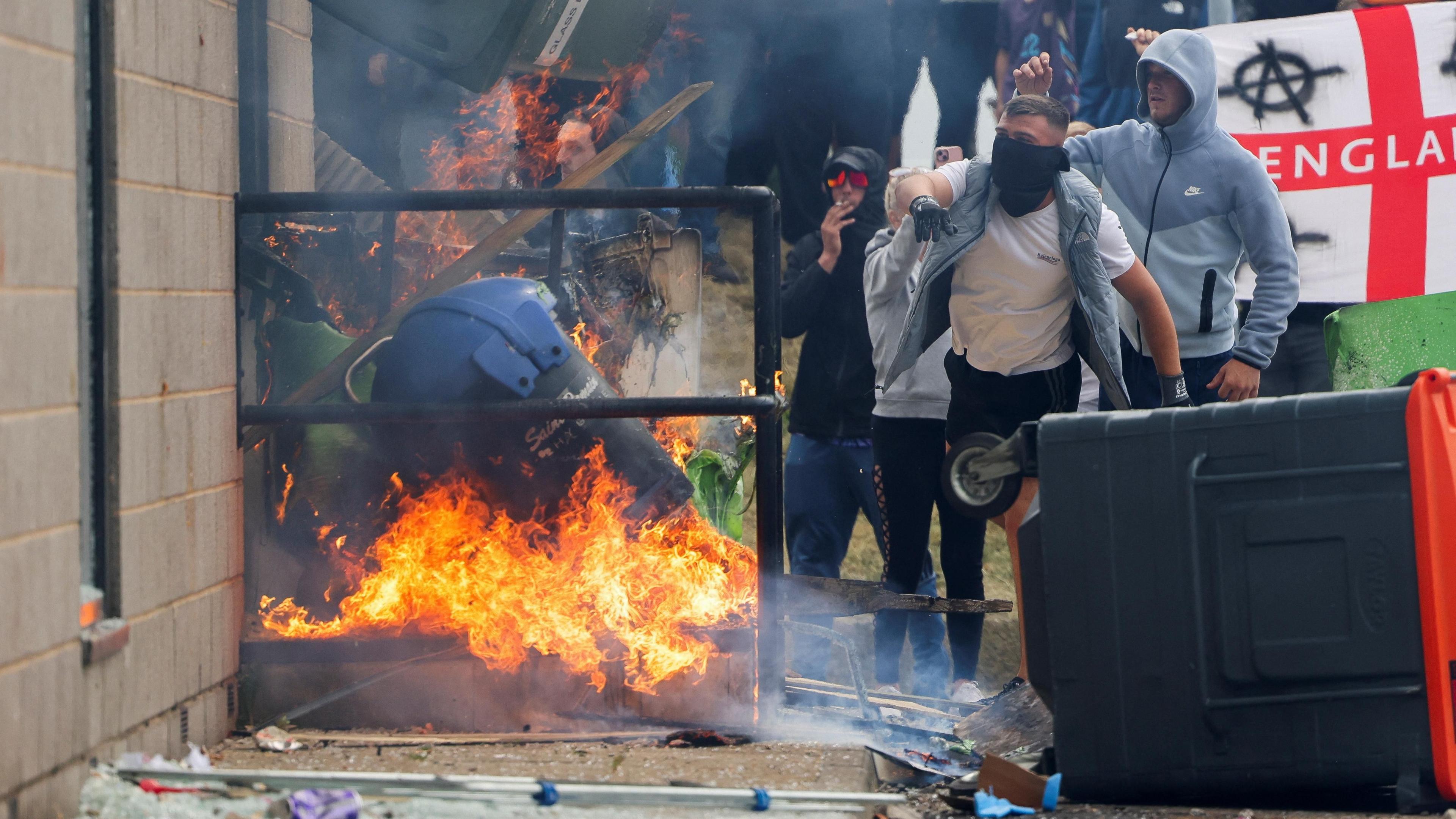Far-right violence 'came out of nowhere'
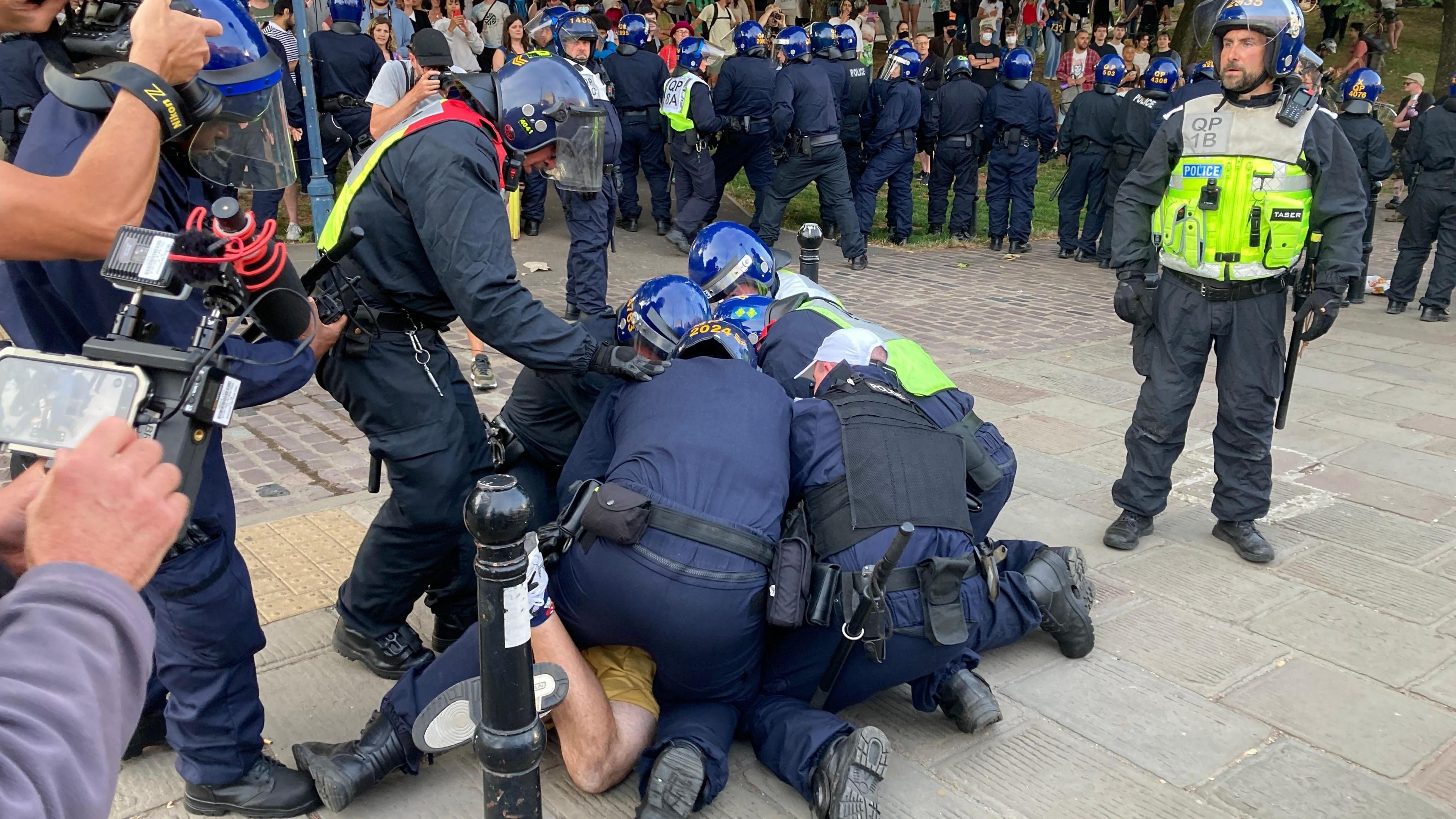
An expert said far-right protesters came out of the "woodwork" in August sparking worry across communities
- Published
"Fear and uncertainty" has been created after far-right protesters "came out of the woodwork" in August and caused violent disorder, an expert has said.
Professor Adeela Shafi, who is a member of an independent panel that scrutinises Avon and Somerset Police, said more needs to be done now to investigate "what’s sitting underneath all of this hatred".
Prof Shafi, who is also a lecturer at the University of Gloucestershire, told BBC Politics West that Bristol's mass unrest "came out of nowhere" compared to previous riots, which had "visible" groups leading them.
Hundreds of far-right protesters gathered at Castle Park and clashed with a counter-protest group on 3 August.
“They came out of the woodwork on that Saturday and everybody went back into the woodwork, apart from those who’d been arrested and continue to be arrested.
"But then you know there are people who think and feel like that, going about, you’re passing them as you’re waiting for the bus, you’re passing them as you’re driving by, you could be sat in the doctor’s surgery with them, and I think that creates another layer of fear and uncertainty that I don’t think was there before," she said.
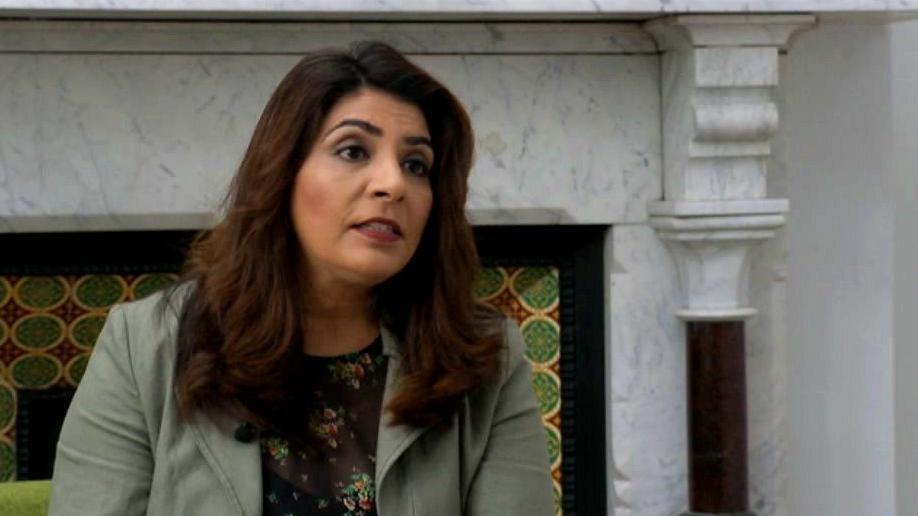
Professor Adeela Shafi said the "violence came out of nowhere"
She added that social media had a concerning role to play in the unrest.
“You know that this sort of thing happens on social media and online but you never really saw it on the streets," she said.
"This brought it back onto the streets and in some ways, in a worse way, fuelled by what’s on social media so although it took you back it also reminded you how quickly things can erupt.
“Back in the day it was organised in a much more visible way. This almost seemed to come out of nowhere.
"It’s not a particular party or group necessarily and no apparent leader either, and I think that in itself is another reminder that this is almost a different sort of beast that we don’t yet know how people can be galvanised by what they read online," she added.
'Unpleasant to watch'
Following the violence, at least 16 people have now been jailed or detained. The police have been using footage gathered from body worn video (BMV) to identify people they want to speak to who took part in the mass protest.
Prof Shafi said her work on The Independent Scrutiny of Police Powers Panel (ISoPP) has directly led to officers wearing BMV as a matter of course.
“I was in the command room on that day so did see quite a lot of the offences first-hand and some of the things the officers had to face," she said.
"Whilst I’m in my role on the scrutiny panel you’re scrutinising what the police do, you also get to see what the police have to deal with on the streets and that was not a pleasant watch at the time."
Bristol's unrest followed the killing of three young girls in Southport, Merseyside.
The protest that began in Castle Park, then moved to the nearby Mercure hotel that was housing asylum seekers. But when the far-right protesters arrived at the building, they were blocked by anti-racism protesters who formed a wall by locking arms outside its entrance.
Prof Shafi said she was "shocked" by the scale of the angry protests that took place in the city where she was born and bred.
People as young as 15 have been given custodial sentences, and she thinks in order to move forwards, more must be done to understand why so many took part.
“There needs to be some dialogue. Where is this going? What does this mean? What’s simmering underneath the surface? I think we need to be moving into conversations about why is this happening?
"What’s sitting underneath all of this hate and hatred and how people can just come out and be violent on the streets, who might well be normal everyday people.
"We need to do things differently and talk to some of those people who came out. We need to understand, so we do need those conversations to get to the bottom of this if we genuinely want to say 'we don’t want this anymore'," she said.
Dr Corinne Funnell, senior lecturer in law at the University of the West of England, is also analysing the violent disorder that marred Bristol in August.
She thinks the use of social media was a significant factor in facilitating riots in areas of the UK.
“Whereas once, for example, the English Defence League might have or did organise online and tried to recruit and create this sort of coherent group with an identity and a raison d'etre, what criminologists have seen now is that these groups tend to be more post organisational, they call it.
"They're not so adherent to the idea of a group or a sort of a cult identity or a membership.
“And this then, speaks to the diverse array of people that will join up through social platforms for different motives, but certainly to become involved in the end result, which is disorder on the streets.
"And in this particular case we know obviously that there was false information which is a critical issue which needs to be dealt with," she added.
Following the unrest in August across England, the government said it would make more than 500 new prison places available to ensure those taking part in the violence could be jailed.
In September, the government introduced a new measure to release some offenders early in a controversial scheme aimed at easing the pressure on prisons which are nearly full.
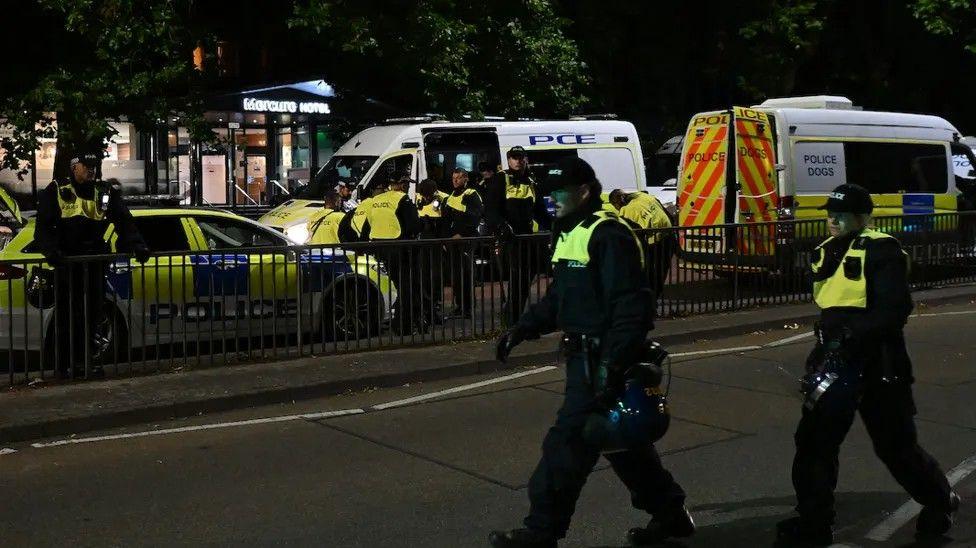
The unrest erupted in Bristol, and other cities, earlier in the year
Get in touch
Tell us which stories we should cover in Bristol
Follow BBC Bristol on Facebook, external, X, external and Instagram, external. Send your story ideas to us on email or via WhatsApp on 0800 313 4630.
- Published6 September 2024
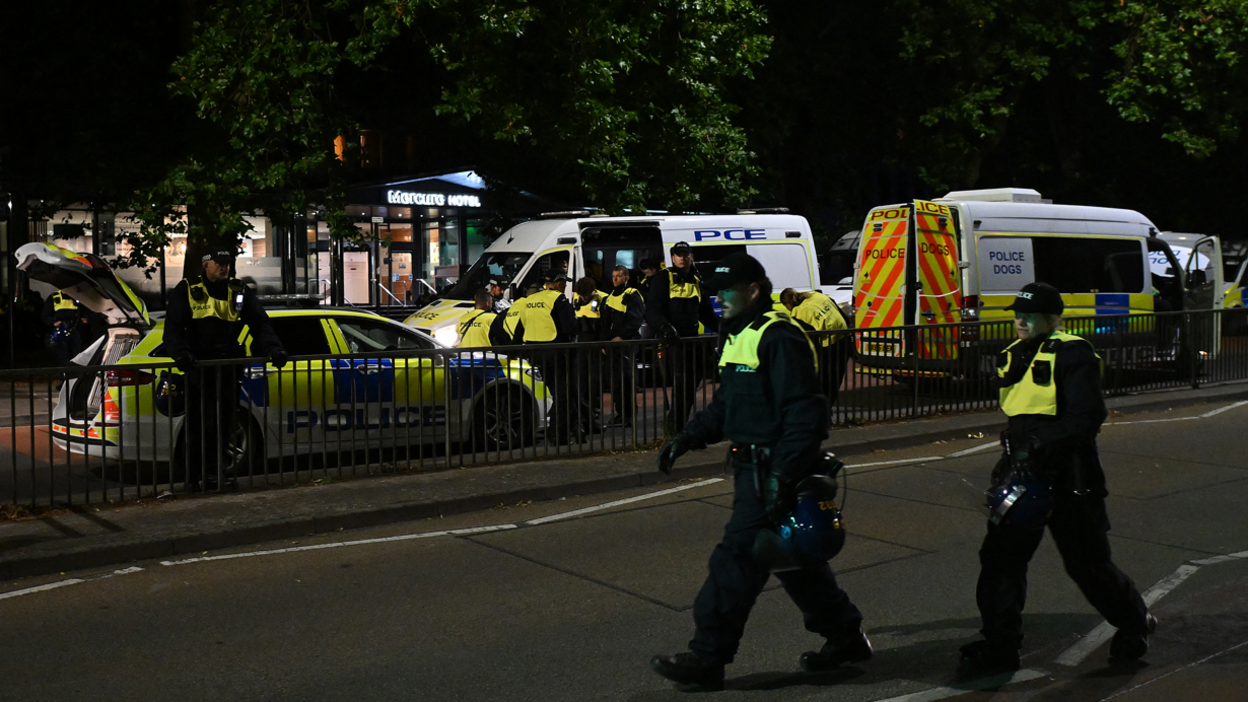
- Published10 September 2024
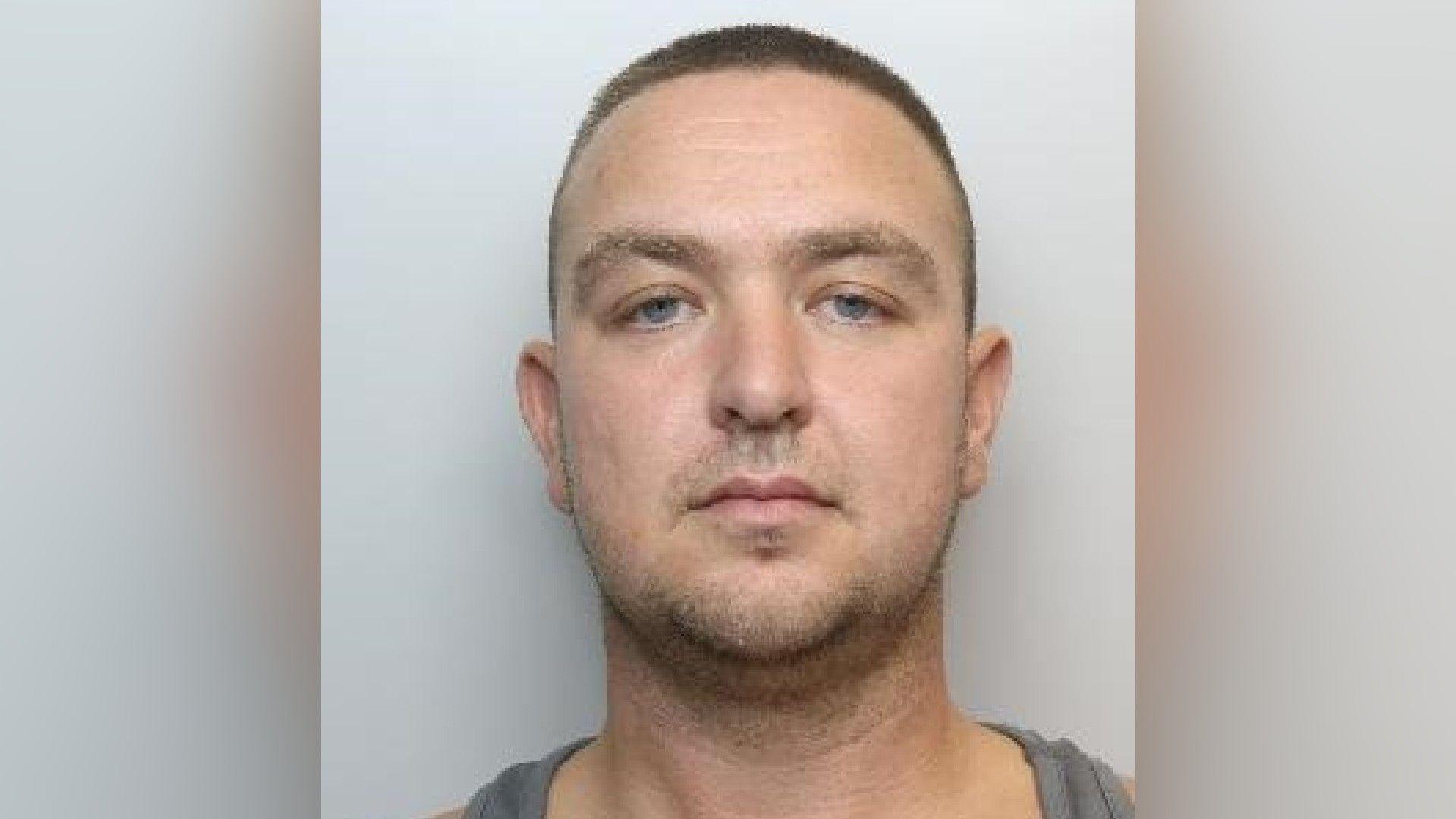
- Published6 August 2024
